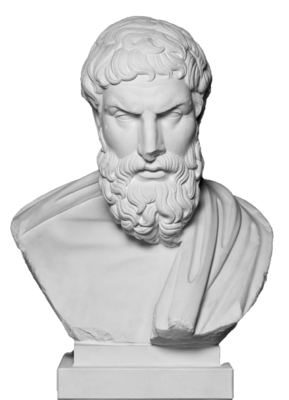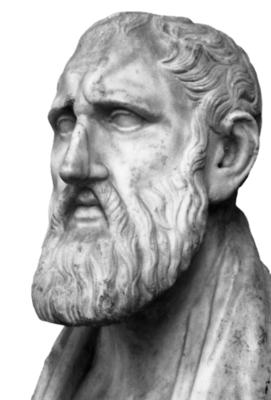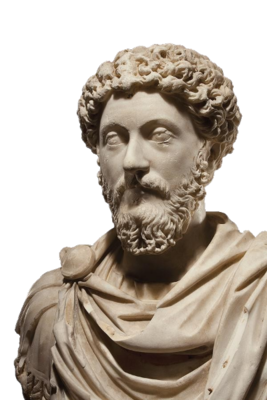Excellence" is not a gift, but a skill that takes practice.
We do not act "rightly" because we are "excellent",
in fact we achieve "excellence" by acting "rightly".
― Plato
Plato was a Greek philosopher born in Athens during the Classical period in Ancient Greece. He
founded
the
Platonist school of thought and the Academy, the first institution of higher learning in the Western
world.
He who is unable to live in society, or who has no need
because he is
sufficient
for
himself, must be either a beast or a god.
― Aristotle
Aristotle was a Greek philosopher and polymath during the Classical period in
Ancient
Greece. Taught by Plato, he was the founder of the Lyceum, the Peripatetic school of philosophy, and
the
Aristotelian tradition.
Misfortune seldom intrudes upon the wise man; his greatest and highest interests
are
directed by reason throughout the course of life.
― Epicurus
Epicurus was an ancient Greek philosopher and sage who founded Epicureanism, a
highly
influential school of philosophy. Influenced by Democritus, Aristippus, Pyrrho, and possibly the
Cynics,
he
turned against the Platonism of his day and established his own school, known as "the Garden", in
Athens.
That which exercises reason is more excellent than that which does
not exercise
reason;
there is nothing more excellent than the universe, therefore the universe exercises reason.
― Zeno of Citium
Zeno of Citium was a Hellenistic philosopher from Citium, Cyprus. Zeno
was the founder of the Stoic school of philosophy, which he taught in Athens from about 300 BC.
Based on
the
moral ideas of the Cynics, Stoicism laid great emphasis on goodness and peace of mind gained from
living
a
life of virtue in accordance with nature.
If someone is able to show me that what I think or do is not right, I will happily
change, for I seek the truth, by which no one was ever truly harmed. It is the person who continues
in
his
self-deception and ignorance who is harmed.
― Marcus Aurelius
Marcus Aurelius Antoninus was Roman emperor from 161 to 180 and a Stoic philosopher.
He
was the last of the rulers known as the Five Good Emperors (a term coined some 13 centuries later by
Niccolò
Machiavelli), and the last emperor of the Pax Romana, an age of relative peace and stability for the
Roman
Empire lasting from 27 BC to 180 AD. He served as Roman consul in 140, 145, and 161.
Hello, my name is Athanasios, I'm from Macedonia, Greece, I like philosophy and this is my little
tribute I
made with lots of love to my favorite philosophers. Thank you for sticking to the end.
Thanasis Koutsioukis ©|2022












